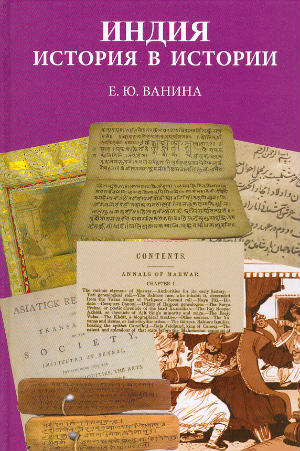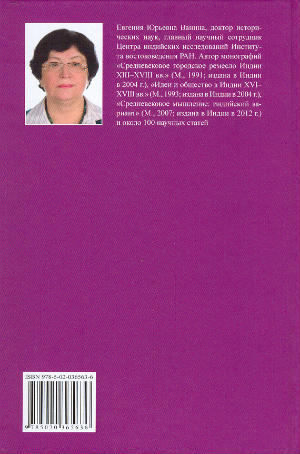Книга
 Индия : история в истории
Индия : история в истории
 Индия : история в истории
Индия : история в истории
Ванина Евгения Юрьевна
Институт востоковедения РАН
Москва, 2014, 343 стр.
ISBN: 978-5-02-036563-6
В книге исследуется развитие исторических воззрений и исторической культуры Индии на протяжении всей ее многовековой истории. Предисловие раскрывает теоретические и методологические основы исследования, формулирует понятие «историческая культура», анализирует степень изученности проблемы в отечественной и зарубежной науке. Глава I рассматривает исторические представления средневековых индийцев и опровергает стереотип «антиисторичности» доколониального индийского общества. Глава II посвящена европейскому ориентиализму и разработанным колониальной индологией концепциям истории Индии в соотношении с идеологической и образовательной практикой британского колониализма. Глава III исследует реконструкции прошлого в контексте основных направлений индийского национализма: коммуналистского (в двух ипостасях – индусской и мусульманской) и общегражданского. Глава IV представляет «битвы за прошлое», которые стали характерной чертой общественно-политической жизни современной Индии. Заключение содержит основные выводы работы и прогнозы на будущее.
English version
The book discusses the evolution of historical consciousness and historical culture in India. Introduction is a discourse on the notions of “historical consciousness”, “historical memory” and “historical culture” as defined by modern researches. Chapter I, The Past as Morality, analyses ancient and medieval Indian perceptions of history. The evidence from historical texts of various genres (epics, epigraphic records, bardic poems, chronicles, biographies) is enough to reconstruct basic medieval approach to the past as a model of righteous behaviour for future generations and to disprove the Orientalistic dogma of pre-colonial Indians’ “ahistoricity”. Chapter II, Imported Past deals with the versions of Indian history constructed by European Orientalists in colonial times. The notion of a once existent “Golden Age” of ancient (Aryan) India which had subsequently degraded into medieval darkness was, as the chapter shows, interconnected with the policies of colonial domination. Chapter III, The Past as a Project, is a study of historical reconstructions by various trends of Indian nationalism, such as “exclusive” or “communalist” one, in both its Hindu and Muslim varieties, and “inclusive” or “citizenship-based” (in Indian parlance, “secular”) one. Chapter IV, The Past as a Battlefield, takes the reader to independent India with never-ceasing skirmishes between the “tricolour” (secular), “saffron” (Hindu communalist) and other alternative perceptions of historical past, discussing some peculiar socio-political phenomena of modern India like the “nurture” and “abuse” of “historical feelings”. The Afterword summarizes the research and discusses the evolution of historical consciousness in India vis-à-vis the concept of Indian nation.


